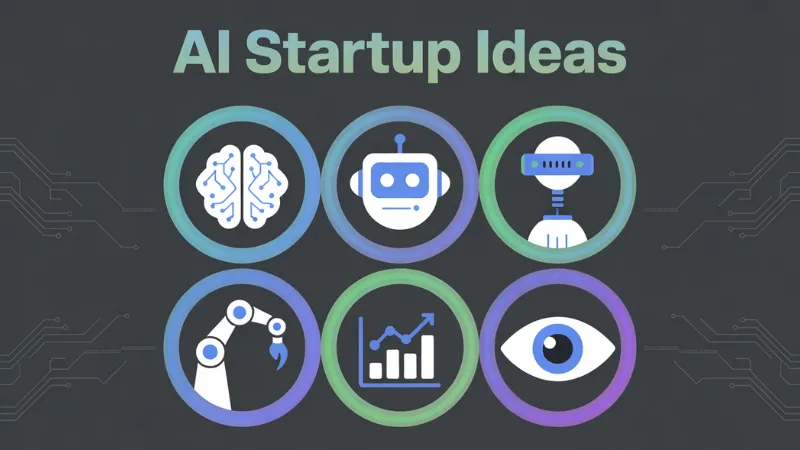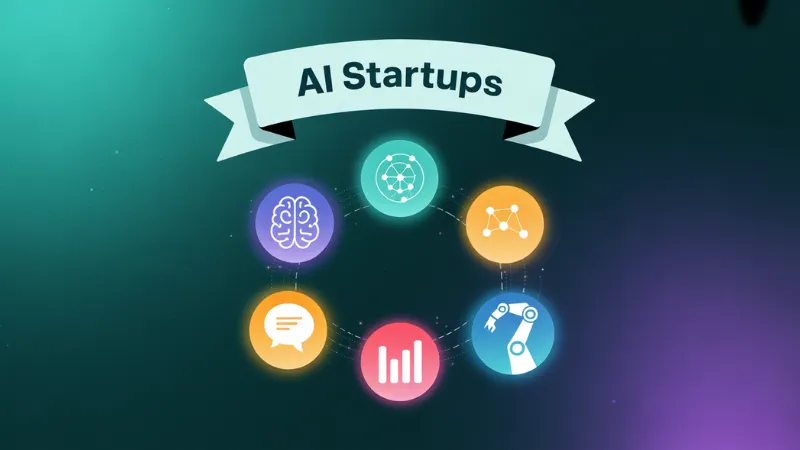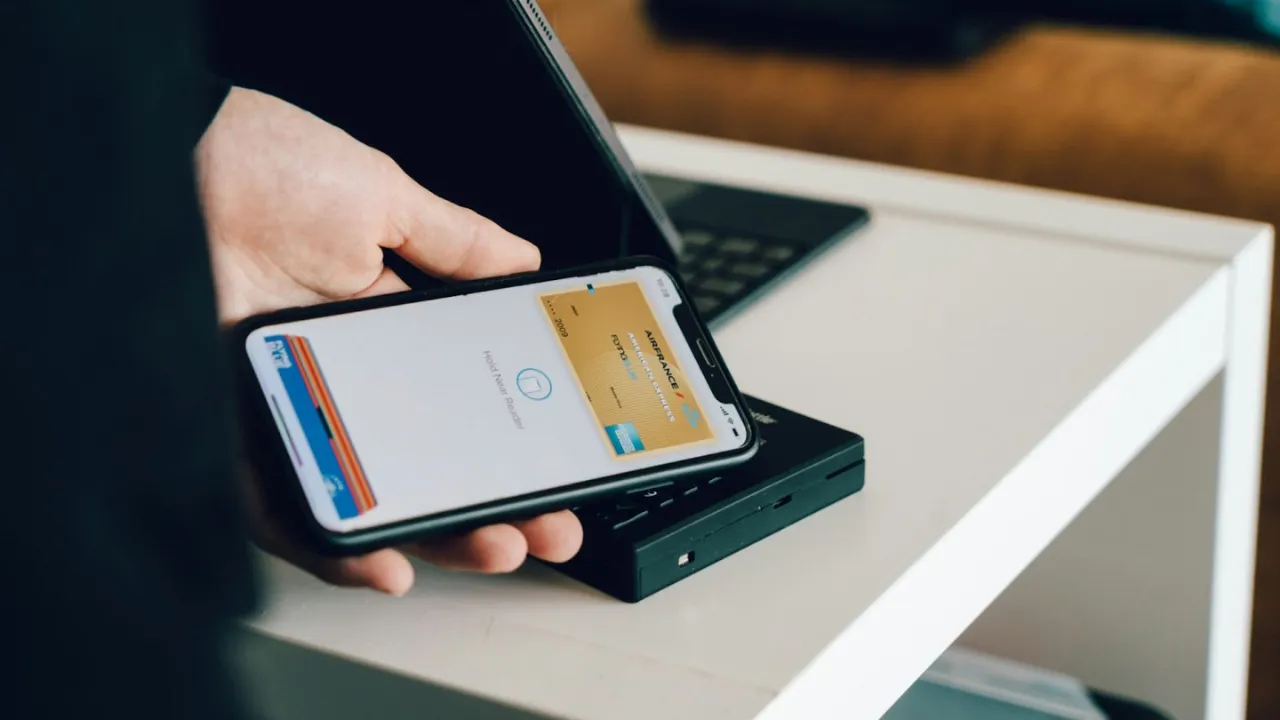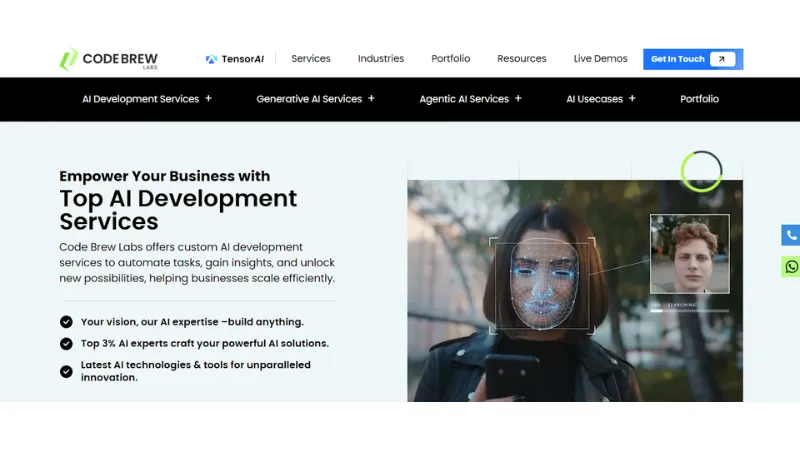
Ever scroll through the news and think you missed the AI wave? It’s already crashed-top to bottom. Investors are pumping billions into artificial intelligence. Studios like Deduxer are listing 25+ profitable AI business ideas that feel like gold mines. Bubble.io’s latest reports show you don’t even need to be hardcore tech to launch an AI startup. With visual building tools and no-code platforms, people are turning ideas into actual products fast. If you’ve ever had a lightbulb moment for a startup, now’s the time to press it.
And yes, even in areas where you wouldn't expect it, people are raising the stakes. Imagine a world where your AI tool processes legal documents, tracks your mood, or optimizes your mobile app recommendations - all in a verified, secure, and reliable way. Security and trust are becoming key not only in technology but also in entertainment. For example, if you are looking for verified online casinos, you should check out SlotsSpot - a platform that collects reliable reviews and ratings of casinos from around the world.
Idea №1: AI-Powered Mental Health / Behavioral Wellness Tool

RECOMMENDED FOR YOU

A Healthier Future: Countries at the Forefront of Healthcare Improvement
Team SR
Jan 8, 2026
Mental health is finally getting the spotlight it deserves, but access to therapy and quality care is still a luxury for many. For entrepreneurs brainstorming ideas for a startup, an AI-powered wellness tool is one of the most promising routes. Picture an app that listens when you vent, tracks your mood over weeks, and nudges you with personalized coping strategies. Using natural language processing and sentiment analysis, it could spot patterns in your behavior and even flag early warning signs of stress, anxiety, or burnout. The draw here is simple: it offers support in your pocket, day or night, no waiting rooms, no scheduling conflicts.
The real challenge is building trust. Nobody wants a “robot therapist” mishandling sensitive data, so privacy and transparency must be baked in from the start. When evaluating ideas for a startup in this space, the key is balancing innovation with reliability. A freemium model could let users access basic journaling and mood tracking, while advanced analytics or direct therapist integration sits behind a subscription. Partnerships with wellness programs, schools, or employers could make it even bigger. If done right, this startup could bridge the gap between self-care apps and professional therapy, becoming the digital safety net people lean on when life gets heavy.
Idea №2: AI Legal Tech / Document Automation Assistant

Lawyers are expensive, contracts are a headache, and legal jargon can make even simple agreements sound like riddles. For founders exploring ideas for a startup, an AI-driven legal assistant stands out as a practical winner. It can cut through the noise by drafting contracts, reviewing documents, and highlighting risks in plain English. Imagine a freelancer uploading a client contract and instantly getting a summary of red flags or a startup founder drafting a partnership agreement without having to pay a small fortune in legal fees. That’s the kind of money-saving solution small businesses and individuals crave.
Of course, this space has hurdles: compliance, liability, and the need for accuracy. Still, AI has already proven it can handle repetitive, structured tasks better than humans. When considering ideas for a startup in this category, a smart move is to begin narrow-like NDAs, freelancer contracts, or rental agreements-then scale up. The business model is clear: subscription tiers for individuals, startups, and SMEs, plus a premium service with real lawyer integration for high-stakes cases. Done well, it democratizes legal services and makes access to law less about your wallet and more about your needs
Idea №3: AI Education / Learning Platform for Neurodivergent Learners

Traditional classrooms aren’t designed for everyone, and neurodivergent learners-whether with ADHD, autism, or other learning differences-often get left behind. For anyone exploring ideas for a startup, an AI-driven education platform is one that could truly change lives. Picture a system that notices when a student’s focus drops, then instantly shifts formats-from text to visuals, from long lectures to bite-sized exercises. It could even adjust pace based on individual progress, giving learners the freedom to thrive on their terms. For parents and teachers, it means clear progress tracking and valuable insights into what actually works.
Building such a platform isn’t just a good business move-it’s a chance to make education more inclusive. Among the many ideas for a startup, this one has the potential to stand out because schools are already investing heavily in edtech, and parents are eager for tools that genuinely help their kids learn. The monetization could come from school licensing, parent subscriptions, or partnerships with education boards. The challenge will be keeping content engaging and the AI smart enough to adapt without frustrating the learner. But if executed right, this startup idea could do more than generate revenue-it could reshape how education meets the needs of millions of overlooked students.
Idea №4: AI Mobile App Ideas (Various Niches)

AI mobile apps are where the action is because everyone’s glued to their phones. Picture a shopping app that learns your style so well it feels like a personal stylist, or a fitness app that uses computer vision to correct your form mid-squat through your camera. For anyone brainstorming ideas for a startup, these examples show just how much room there is to innovate in mobile. Voice assistants could go beyond “set a timer” and become actual companions that understand context, while travel apps could suggest hyper-personalized itineraries based on your habits. These aren’t far-fetched anymore-AI recommendation engines, image recognition, and natural language processing are all ready to power mobile products that feel like magic to users.
The key is finding the right niche and solving a real pain point. AI can chew through data at lightning speed, but if your app drains battery or feels like a gimmick, users will delete it in seconds. That’s why entrepreneurs chasing ideas for a startup in this space need sharp UI/UX, smart data handling, and clear value. Monetization is flexible-ads, freemium upgrades, in-app purchases-but the long game is about retention. An AI app that feels useful, addictive, and trustworthy could easily stand out in the crowded app stores and scale fast.
Idea №5: AI Sustainability / ESG / Fintech / Finance Tool

Money and sustainability might seem like odd bedfellows, but AI makes the combo powerful. For founders hunting for ideas for a startup, this space is packed with opportunity. Imagine an app that helps investors track the carbon footprint of their portfolios, or one that scores companies based on ESG (environmental, social, governance) standards in real time. On the consumer side, AI-driven fintech tools could flag spending habits, predict financial stress before it happens, or even help people find greener alternatives in their budgets. Fraud detection is another hot angle-AI can spot shady transactions faster than a human ever could, saving banks and users millions.
The beauty of this idea is how broad the market is. Anyone searching for ideas for a startup that blends tech with real-world impact will see the potential here. Regulators are demanding more transparency, companies are desperate to prove their green credentials, and consumers want tools that make finance easier and more ethical. A startup could charge subscription fees to investors, license its scoring systems to institutions, or run a B2C app with premium features. The hurdles are clear-reliable data, trust, and heavy regulation-but the upside is huge. If done right, this type of AI startup doesn’t just promise returns, it positions itself at the intersection of profit and purpose.
How to pick the best idea & validate it

Coming up with ideas for a startup is exciting, but not every brilliant concept will work when it hits the real world. The smartest founders don't just fall in love with their idea, they test it under pressure, like a player who double-checks the odds before going all-in. Validation isn't about perfecting the product on day one, it's about proving that real people will actually use it, pay for it, and come back again and again.
| Step | What It Means | How To Do It | Why It Matters |
| Identify the Problem | Make sure your idea solves a real pain point. | Talk to 10–20 people in your target audience. Ask about frustrations. | If nobody cares about the problem, your solution won’t matter. |
| Build a Minimum Viable Product (MVP) | Create the leanest version of your idea. | Use no-code tools, AI APIs, or even mockups. | Lets you test demand without burning cash. |
| Run Small Experiments | Test with a small group of users or a pilot program. | Beta launch, free trials, surveys. | Reveals if people will actually use your product more than once. |
| Measure Key Metrics | Track engagement, retention, and willingness to pay. | Tools like Mixpanel or even simple spreadsheets. | Hard numbers show if the idea has legs or just hype. |
| Iterate or Pivot | Improve the product or change direction if needed. | Collect feedback, tweak features, maybe shift focus. | Prevents sinking time and money into a dead end. |
At the end of the day, picking the “best” idea isn’t about guessing right - it’s about listening, testing, and adapting until the market gives you the green light. The founders who win aren’t the ones who started perfect, they’re the ones who learned fastest. Treat validation like your warm-up game: it’s where you find your rhythm before stepping into the big arena.
Сonclusion
AI isn’t just hype anymore - it’s the new playing field where startups are being built faster than ever. What separates a throwaway idea from a winning one is how well it solves a real problem. Whether it’s an app that helps people manage stress, a legal tool that cuts down paperwork headaches, or a mobile AI product that feels like magic in your pocket, these ideas for a startup are grounded in practical needs. Add in finance tools that connect money and sustainability, or education platforms that finally serve neurodivergent learners properly, and you’re looking at ventures that could both make money and make a difference.


 Follow us
Follow us Follow us
Follow us













